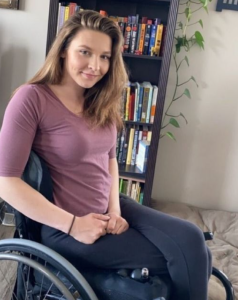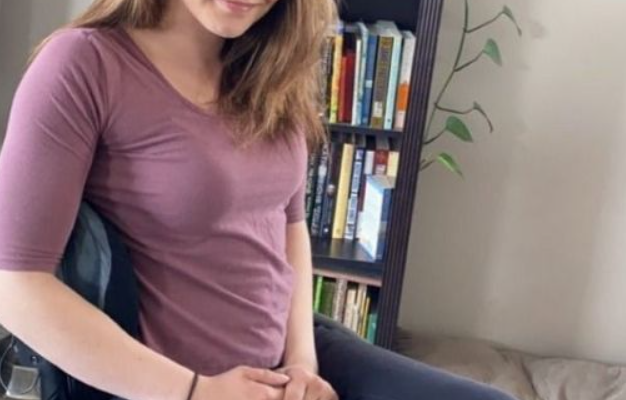I Didn’t Want a Caregiver — I Wanted My Old Life Back
When I first heard the words “you’ll need a caregiver,” it felt like a punch to the gut. A caregiver? Me? I wasn’t fragile, I wasn’t helpless—I was just someone whose life had been interrupted. At least, that’s how I wanted to see it. But the truth was harder to swallow: my body had betrayed me, and my independence, the thing I valued most, slipped through my fingers like sand.
I didn’t want a caregiver. What I wanted was my old life back—the version of me that didn’t rely on others to do the simplest of things. I wanted to get out of bed without help. I wanted to drive my own car, pour my own coffee, shower in privacy, and move through the world without someone watching, waiting, hovering “just in case.” What I wanted was freedom, dignity, and the comfort of routine. Instead, I found myself staring into the mirror at a stranger, one who needed assistance to live.
Losing More Than Mobility
When illness or injury strikes, people assume the hardest part is physical. They look at the crutches, the wheelchair, the bandages, or the scars, and they see what’s missing. But what they don’t realize is that the heaviest burden isn’t in the body—it’s in the spirit.
For me, the diagnosis wasn’t just about limited mobility. It was about the quiet, relentless erosion of identity. I had always been capable. I prided myself on doing things myself, on being the one others could depend on. And suddenly, I was being told I couldn’t even trust my own body to get me safely across a room.
The small indignities piled up. Someone had to tie my shoes, reach the top shelf for me, remind me to take my medications. Each gesture, no matter how kind, felt like proof that I had become less than who I once was.
The Arrival of “Help”
The first day my caregiver arrived, I felt sick. She was cheerful, professional, and kind—the very picture of compassion. But I resented her instantly. Not because she had done anything wrong, but because her very presence was a reminder of what I had lost.
She bustled around the house with ease, doing the things I used to do without thinking. She carried my laundry basket, cooked my meals, even organized my cluttered desk. Instead of gratitude, I felt fury rising in my chest. This was my home, my life, and yet I suddenly felt like a guest in both.
People around me said I was lucky. “At least you have help,” they said, as if that should erase the ache of watching your independence dissolve. They couldn’t understand that luck had nothing to do with it. I didn’t want help—I wanted to be the one helping. I wanted to be the one in control.
What No One Told Me About Losing Independence
There’s a loneliness that comes with needing a caregiver that few people talk about. Yes, someone is always there. But the presence of another doesn’t erase the absence of yourself. Every time I had to ask for help, I felt like I was shrinking. Every time I had to explain what I needed, I felt a little less human and a little more like a burden.
It wasn’t just physical tasks—it was the loss of privacy. Having someone see you at your most vulnerable—struggling to get dressed, fumbling with buttons, or even just breaking down in frustration—strips you raw. It feels like your dignity is under constant negotiation.
At night, when the caregiver left and the house was quiet, I would sit in the dark and remember what it felt like to live without assistance. I would replay old routines in my mind: waking up early to go for a jog, running errands, cooking dinner while music played in the background. I longed for the ordinary, for the version of life I had once complained was boring.
Anger, Grief, and the Illusion of Strength
At first, I thought I was angry at the caregiver. But slowly, I realized I was angry at myself. Angry at my body for breaking down. Angry at life for changing without my permission. Angry at the universe for handing me a script I never wanted to act out.
People expect gratitude from those who receive care. But what they don’t understand is that before gratitude can come, grief has to be acknowledged. I wasn’t just adapting to a new reality—I was mourning the old one. I was mourning the version of me who walked through the world with ease, who didn’t need to ask for help, who believed independence was permanent.
Grief is messy. It looks like snapping at the person trying to help you. It looks like crying in the bathroom so no one sees. It looks like pretending you’re fine when inside you’re unraveling.
Learning the Hard Lesson
It took months before I could see past my resentment. My caregiver, patient as ever, never pushed, never scolded me for my bitterness. She just showed up every day and did her job. Slowly, I began to see her not as the symbol of my loss but as a human being—someone who had her own life, her own struggles, her own reasons for doing this work.
One afternoon, she shared a story about her mother, who had once needed care after a terrible accident. “She hated it too,” my caregiver admitted. “But I always told her—it doesn’t make you less. It just means life looks different for a while.”
Her words stuck with me. Different doesn’t mean worthless. Different doesn’t mean powerless.
I still longed for my old life, but for the first time, I considered that maybe this new life—though painful and altered—wasn’t devoid of value.
Redefining Independence
What I eventually learned was that independence isn’t just about doing everything yourself. True independence is about having the courage to live fully, even when circumstances force you to accept help. It’s about finding ways to keep your identity alive even when the rules have changed.
I began taking back small pieces of my life. I insisted on folding my own laundry, even if it took longer. I started journaling again, reminding myself that my voice still mattered. I made decisions about my schedule and meals, asserting that I still had agency.
Accepting a caregiver didn’t mean surrendering who I was. It meant learning to adapt, to find dignity in new forms of strength.
The Road Forward
Do I still wish for my old life back? Absolutely. Every single day. There’s not a morning that passes where I don’t ache to wake up in the body I once had. But I’ve also come to accept that life doesn’t rewind. It only moves forward.
The caregiver I once resented has become a quiet ally in this journey. She helps me see that asking for support doesn’t erase my worth. If anything, it reveals a new layer of resilience I didn’t know I had.
I didn’t want a caregiver—I wanted my old life back. But in learning to live with both loss and help, I’ve discovered something else: my life may not look the way it used to, but it is still mine. And that means it is still worth living, fiercely and fully.

